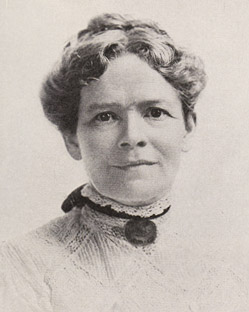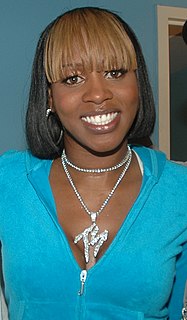A Quote by Oscar Wilde
In his very rejection of art Walt Whitman is an artist. He tried to produce a certain effect by certain means and he succeeded....He stands apart, and the chief value of his work is in its prophecy, not in its performance. He has begun a prelude to larger themes. He is the herald to a new era. As a man he is the precursor of a fresh type. He is a factor in the heroic and spiritual evolution of the human being. If Poetry has passed him by, Philosophy will take note of him.
Quote Topics
Apart
Art
Artist
Begun
Being
Certain
Chief
Effect
Era
Evolution
Factor
Fresh
Heroic
Him
His
Human
Human Being
Larger
Man
Means
New
New Era
Note
Passed
Performance
Philosophy
Poetry
Precursor
Prelude
Produce
Prophecy
Rejection
Spiritual
Spiritual Evolution
Stands
Succeeded
Take
Themes
Tried
Type
Value
Very
Walt
Will
Work
Related Quotes
The artist of the future will live the ordinary life of a human being, earning his living by some kind of labour. He will strive to give the fruit of that supreme spiritual force which passes through him to the greatest number of people, because this conveying of the feelings that have been born in him to the greatest number of people is his joy and his reward. The artist of the future will not even understand how it is possible for an artist, whose joy consists in the widest dissemination of his works, to give these works only in exchange for a certain payment.
Art is a kind of innate drive that seizes a human being and makes him its instrument. The artist is not a person endowed with free will who seeks his own ends, but one who allows art to realize its purpose through him. As a human being he may have moods and a will and personal aims, but as an artist he is "man" in a higher sense— he is "collective man"— one who carries and shapes the unconscious, psychic forms of mankind.
A man's sexual choice is the result and the sum of his fundamental convictions.... He will always be attracted to the woman who reflects his deepest vision of himself, the woman whose surrender permits him to experience a sense of self-esteem. The man who is proudly certain of his own value, will want the highest type of woman he can find, the woman he admires, the strongest, the hardest to conquer--because only the possession of a heroine will give him the sense of an achievement.
Every work of art reaches man in his inner powers. It reaches him more profoundly and insidiously than any rational proposition, either cogent demonstration or sophistry. For it strikes him with two terrible weapons, Intuition and Beauty, and at the single root in him of all his energies... Art and Poetry awaken the dreams of man, and his longings, and reveal to him some of the abysses he has in himself.
In the performance of an illocutionary act in the literal utterance of a sentence, the speaker intends to produce a certain effect by means of getting the hearer to recognize his intention to produce that effect; and furthermore, if he is using the words literally, he intends this recognition to be achieved in virtue of the fact that the rules for using the expressions he utters associate the expression with the production of that effect.
Man has risen, not fallen. He can choose to develop his capacities as the highest animal and to try to rise still farther, or he can choose otherwise. The choice is his responsibility, and his alone. There is no automatism that will carry him upward without choice or effort and there is no trend solely in the right direction. Evolution has no purpose; man must supply this for himself. The means to gaining right ends involve both organic evolution and human evolution, but human choice as to what are the right ends must be based on human evolution.
Every artist knows that there is no such thing as "freedom" in art. The first thing an artist does when he begins a new work is to lay down the barriers and limitations; he decides upon a certain composition, a certain key, a certain relation of creatures or objects to each other. He is never free, and the more splendid his imagination, the more intense his feeling, the farther he goes from general truth and general emotion.
Every work of art causes the receiver to enter into a certain kind of relationship both with him who produced the art, and with all those who, simultaneously, previously, or subsequently, receive the same artistic impression. Art is a human activity- that one man consciously by means of certain external signs, hands on to others feelings he has lived through, and that others are touched by these feelings and also experience them.
The internationalization of art becomes a factor contributing to the estrangement of art from the artist. The sum of works of all times and places stands against him as an entity with objectives and values of its own. In turn, since becoming aware of the organized body of artworks as the obstacle to his own aesthetic self-affirmation, the artist is pushed toward anti-intellectualism and willful dismissal of the art of the past.
In Dogen's writing, the practical instruction, philosophy and poetry are together in one voice. People hear about his poetry, go to his work, and expect to find poetry, or they hear about his philosophy and expect to find philosophy. They look just for practical instruction and find poetry and philosophy. They can't make out the complexity of his writing, become frustrated and let him go.
Take a Nicodemus and put a Joseph Smith's spirit in him, and what do you have? Take a Da Vinci or a Michelangelo or a Shakespeare and give him a total knowledge of the plan of salvation of God and personal revelation and cleanse him and take a look at the statues he will carve and the murals he will paint and the masterpieves he will produce. Take a handel with his purposeful effort, his superb talent, his earnest desire to properly depict the story, and give him inward vision of the whole true story and revelation, and what a master you will have!





































